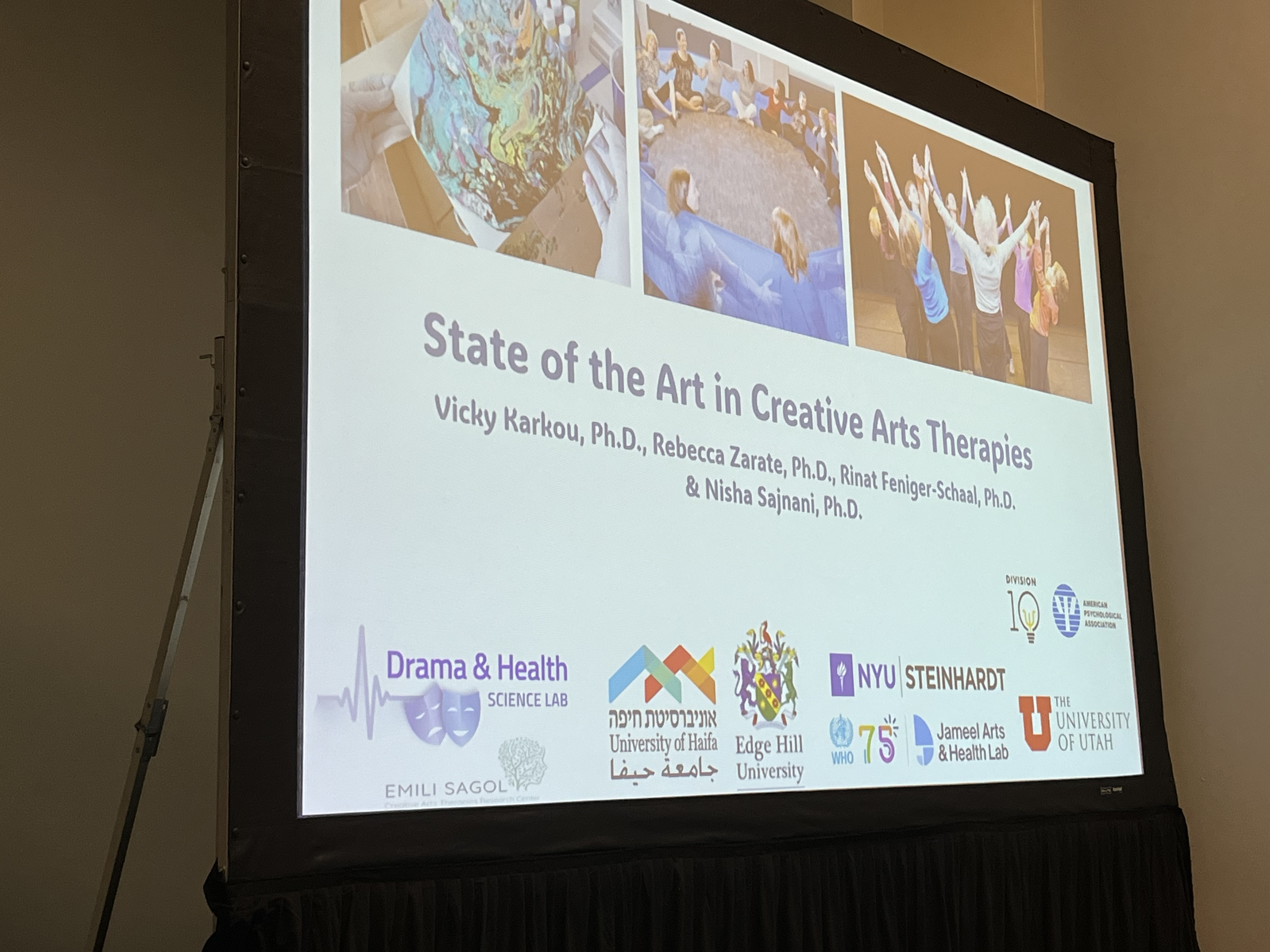Creative Arts Therapy (CAT) was a rising presence at this year's American Psychological Association (APA) Convention in Washington D.C. College of Fine Arts Associate Dean for Research, Rebecca Zarate PhD, was among the leading researchers presenting for APA's Division 10, focused on the psychology of creativity and aesthetics.
Zarate, a board-certified Music Therapist (MT-BC), and licensed Creative Arts Therapist (LCAT), has been a long-time advocate for issues related to the arts in health. She and a team of respected colleagues in the field led a symposium entitled "The psychological benefits of drama, music, and dance movement therapies: State of the art in creative arts therapies." The session aimed to present a diverse picture of leading research on Creative Arts Therapies –– which is an umbrella term for healthcare professions in which arts-based creative processes and their products are used to improve health and well-being within a therapeutic relationship.
From the presentation abstract:
"Creative arts therapies (CATs) are health care professions that involve the intentional and systematic use of the creative and expressive process of artmaking to optimize health and well-being. Visual arts, music, dance movement, and drama provide means of expression to help individuals understand, make sense of, and cope with their distress within a therapeutic relationship. The creative process positions the participants as active productive contributors in their communities, rather than “patients” or “clients”. This symposium will present a broad-based picture of recent studies on CATs by leading scholars in the field."
Zarate's presentation, "Nature’s Adaptogen: Transforming Anxiety Narratives Together in Music Therapy," examines music psychotherapy and it's impacts on approaching anxiety, which is now considered a prevalent global mental health concern on the rise. She spoke about the role and function of music in the affective life of individuals experiencing anxiety on the social level.
Our new arrival of creative arts therapy science here at the U will contribute significantly to our research initiatives and the OneU approach. It is extremely innovative for the Western scholarly scene, and the environment of higher education.
Prof. Vicky Karkou, the Director of the Research Centre for Arts and Wellbeing at Edge Hill University in the UK presented results from the recent Cochrane Review deonstrating the effects of dance movement therapy on clients suffering from depression. Dr. Nisha Sajnani, the Director of the Drama Therapy program and Theater & Health Lab at NYU, closed the panel with a presentation on the wider global research that is happening in her collaborations between the World Health Organization NYU, the Jameel Arts & health Lab and CULTRUNNERS. Dr. Rinat Feniger-Schaal, the Director of the Dramatherapy and Psychodrama program at the University of Haifa, Israel focused on the use of a common exercise from theatre practice - the mirror game, to explore attachment styles in adulthood for assessment and intervention.
Zarate credits colleague Dr. Hod Orkibi of Haifa University, fellow of the APA, for his advocacy for the science of creative arts therapy which has contributed to increased dialogue around the topic at the APA convention.
"Our new arrival of creative arts therapy science here at the U will contribute significantly to our research initiatives and the OneU approach. It is extremely innovative for the Western scholarly scene, and the environment of higher education," Zarate said.

